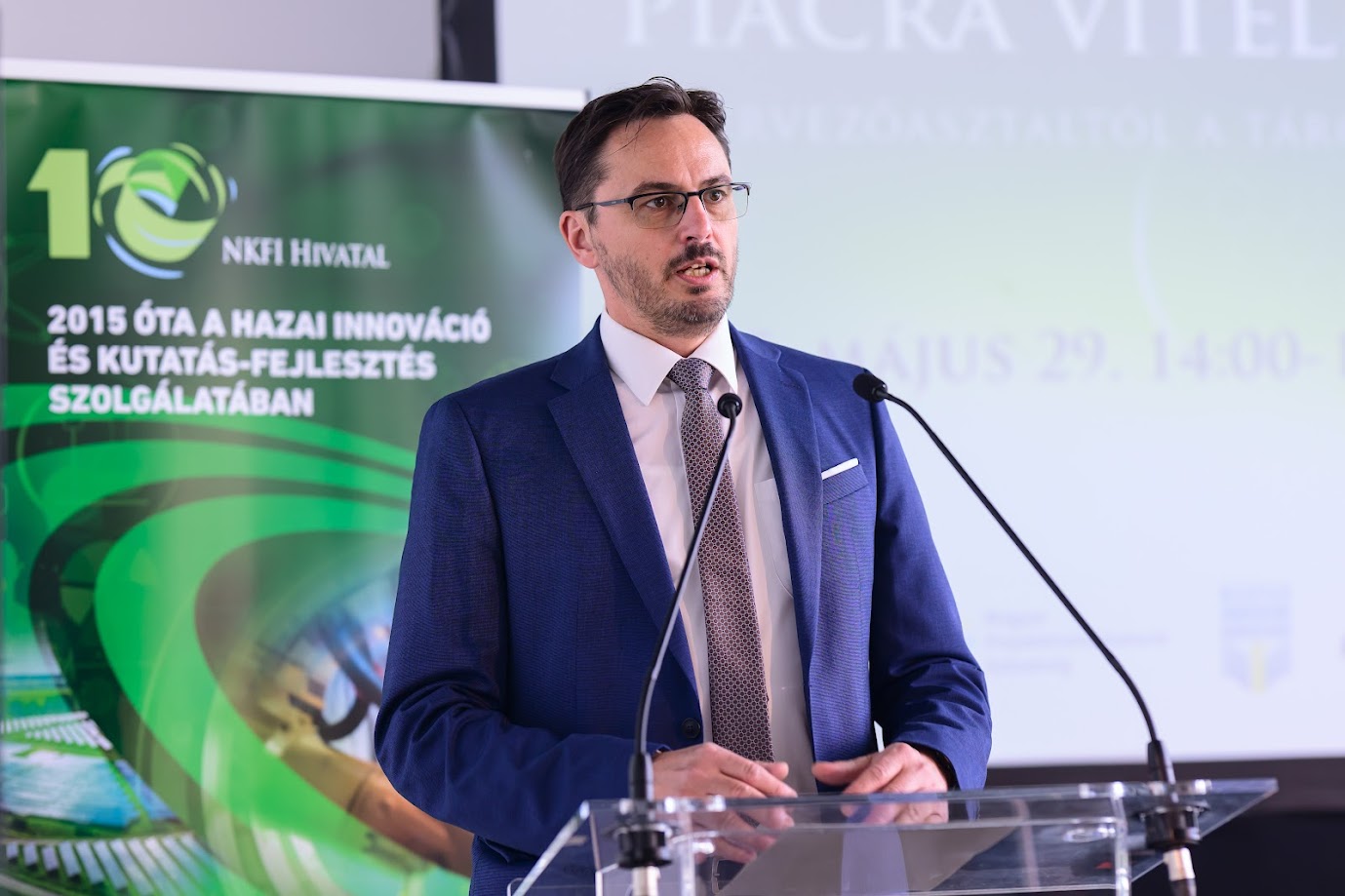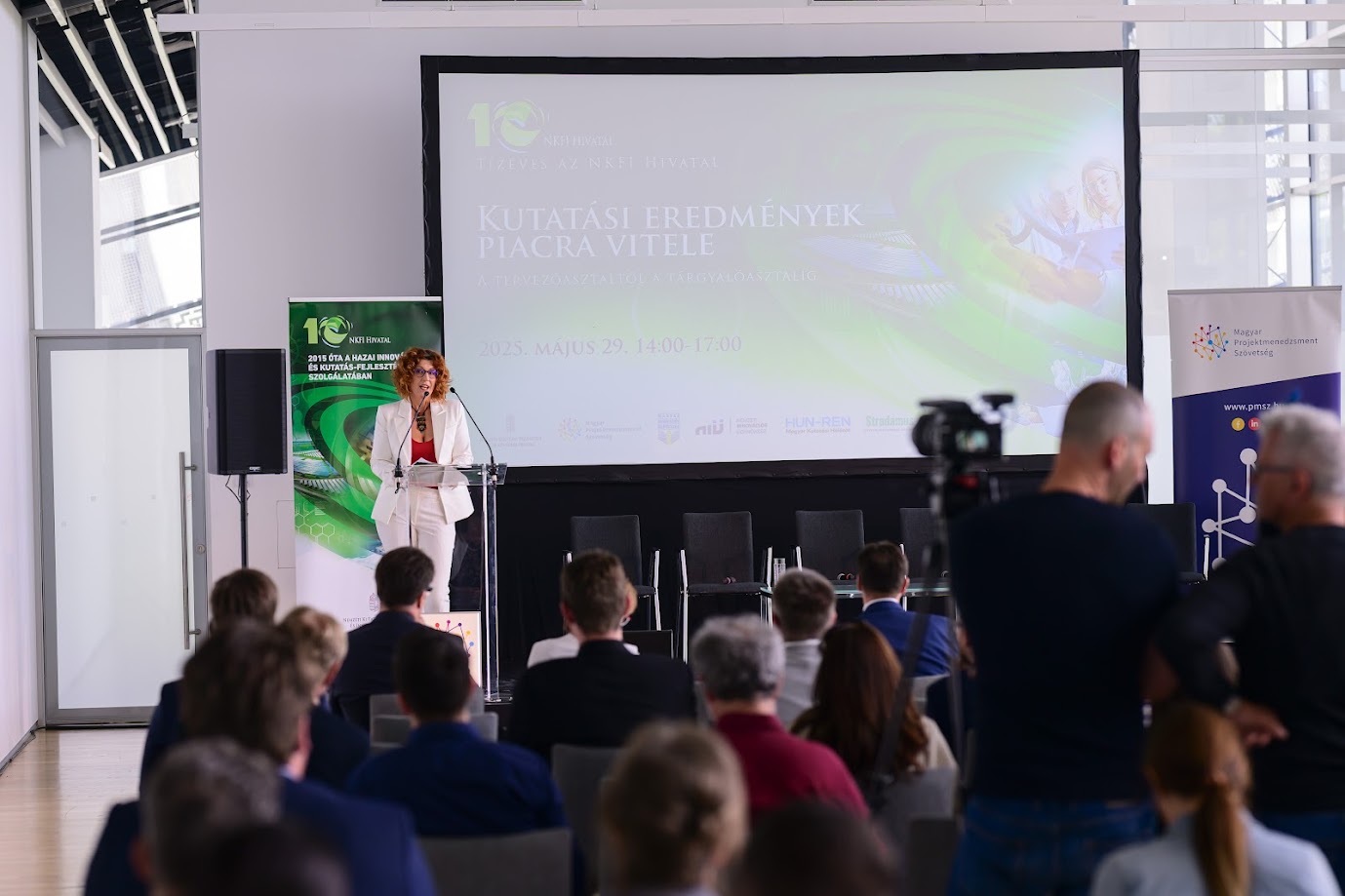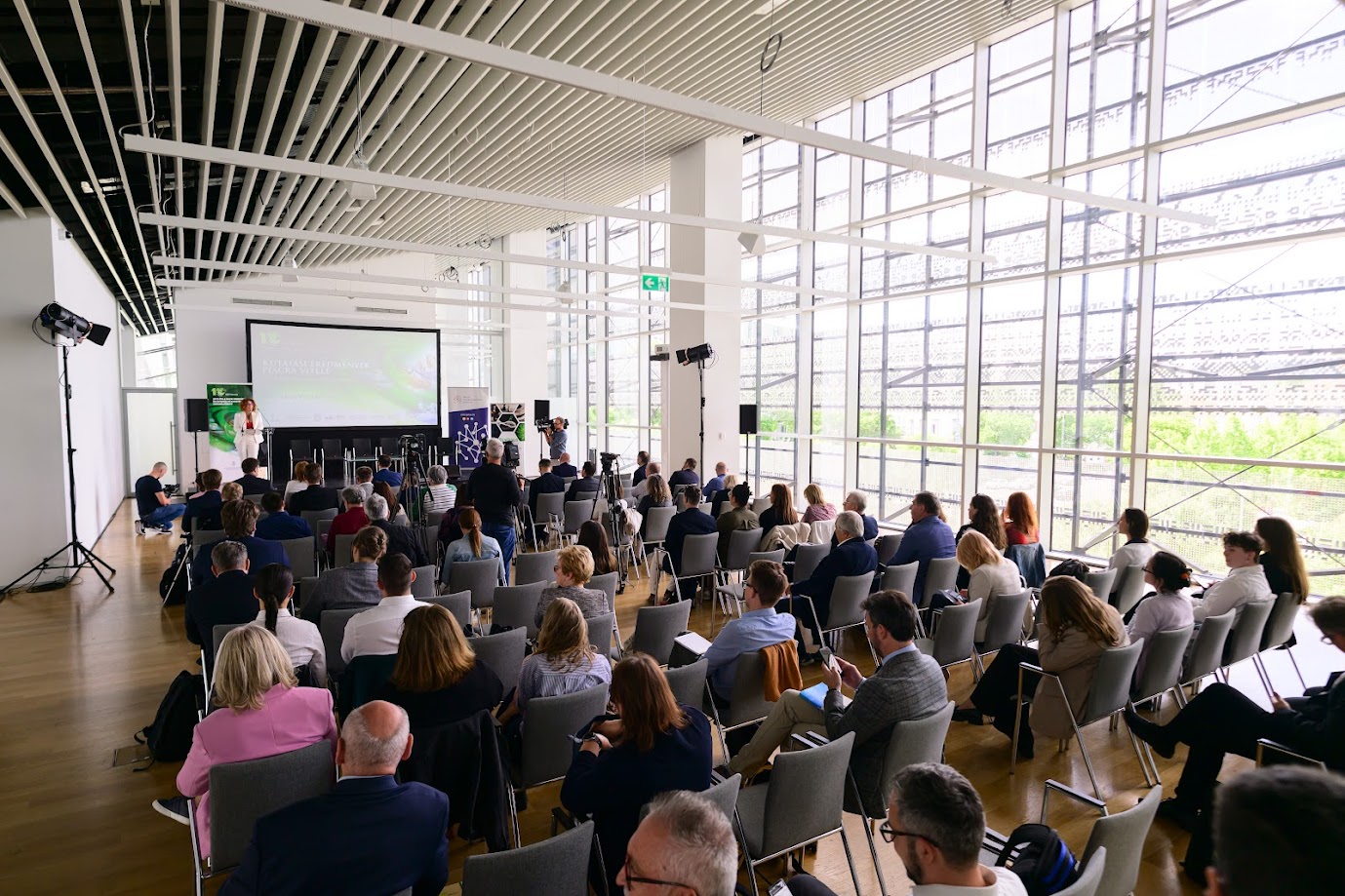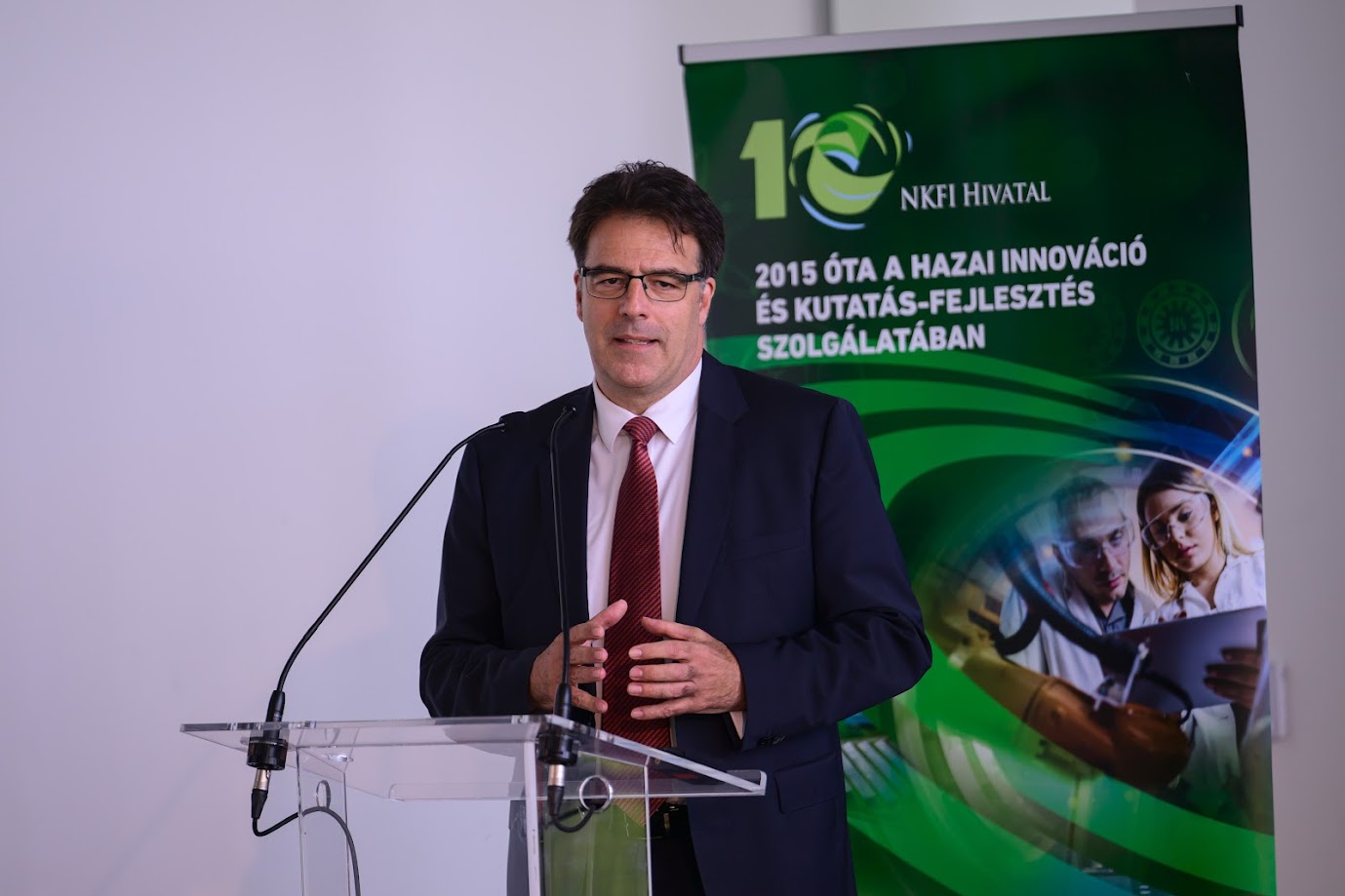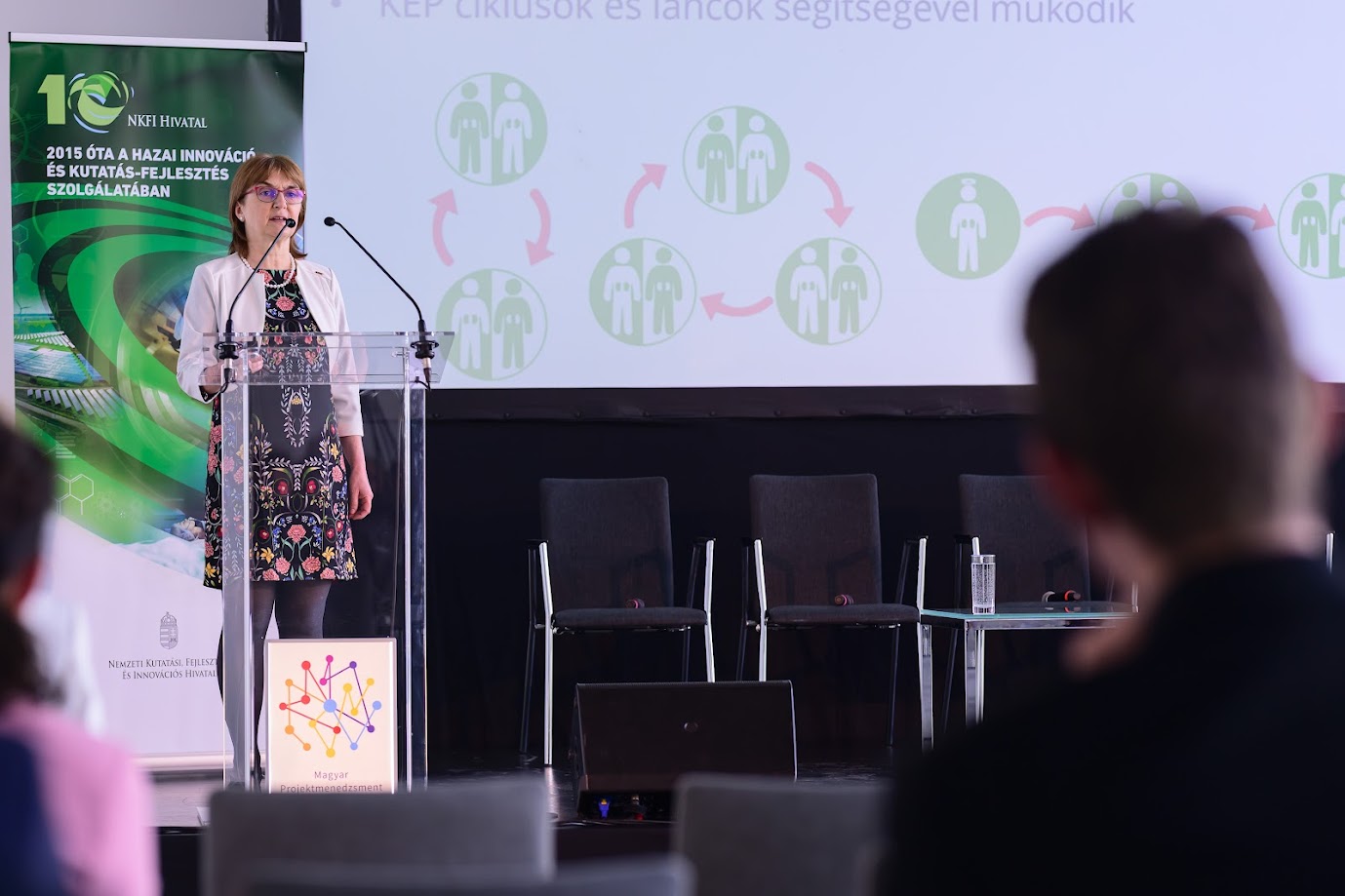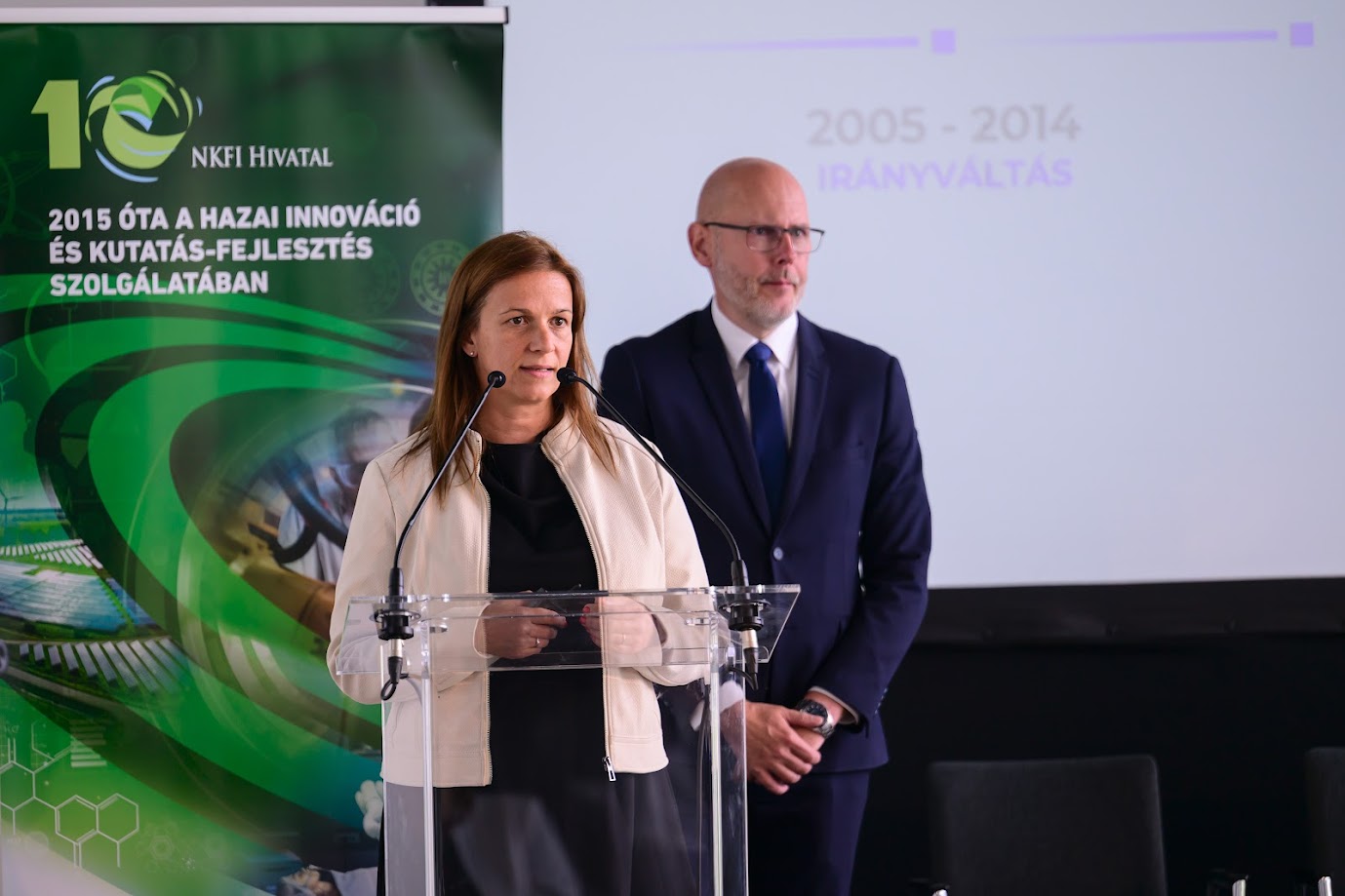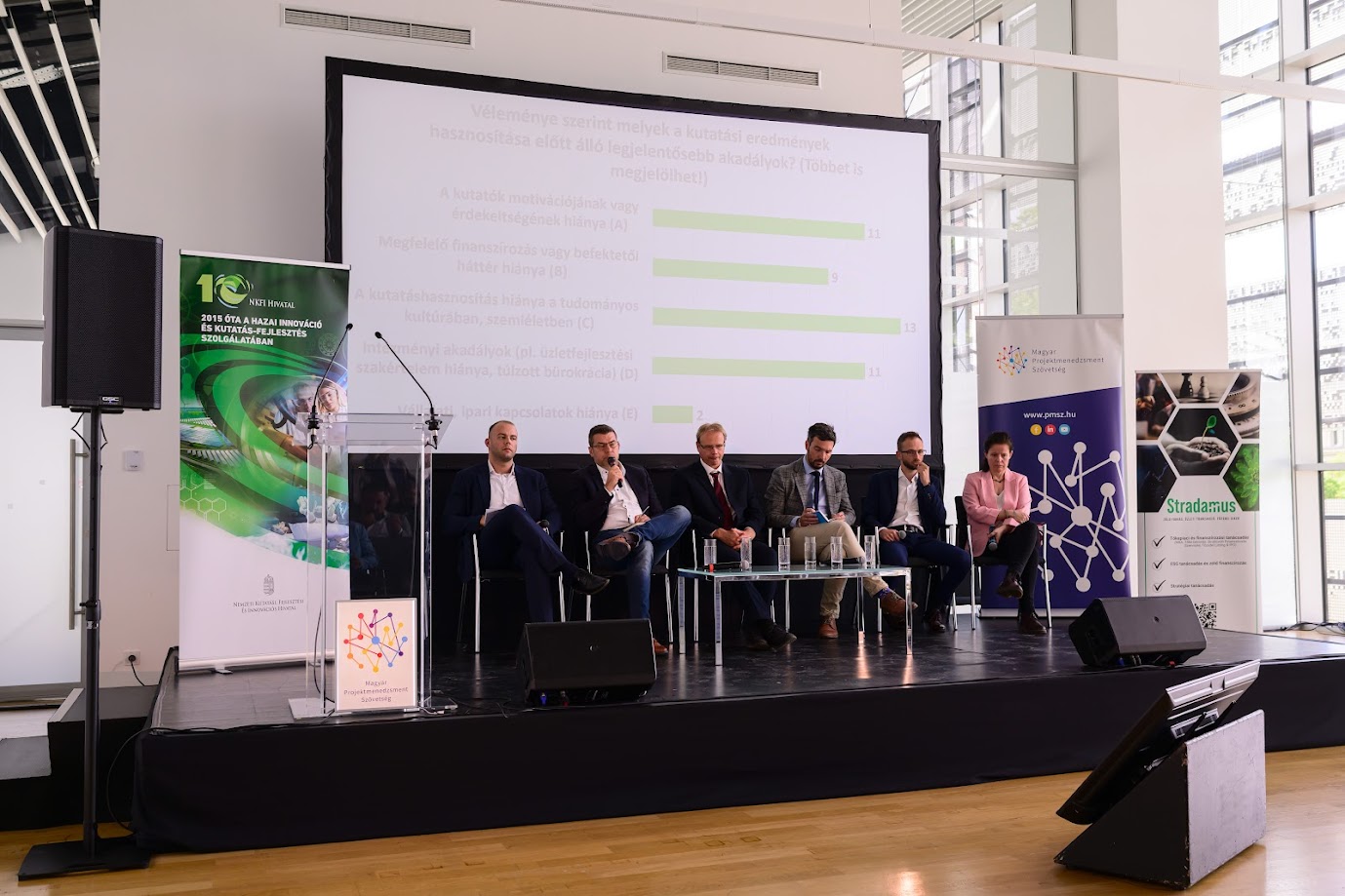Budapest, 02 June 2025 – Bringing research results to market can only be successfully achieved through collaboration, a solid institutional background and a shift in mindset – this was the key message of the second event in the conference series launched to mark the 10th anniversary of the National Research, Development and Innovation Office (NRDI Office), held on 29 May at the Museum of Ethnography. The event, held with the active involvement of the Hungarian Project Management Association, showcased current challenges and promising examples from the research-university-innovation ecosystem.
In the packed main hall of the Museum of Ethnography, researchers, academics and decision-makers from the business and government sectors discussed the current issues of commercialising research results.
In his opening speech, Dr. Péter Domokos, Chair of the Research Council of Hungary (KKT), stressed: “Scientists are inherently driven by the desire to understand the world, but today it is a justified expectation that the results of science should have a positive social and economic impact.” He added that scientists can be engaged in innovation through projects that combine both utility and excellence.
Dr. Zsolt Szalay, Head of the Department of Automotive Technologies at BME, presented international success stories. According to the experiences of Singapore, Israel and Sweden, effective innovation ecosystems today act as “gravitational hubs”. He highlighted Israel’s water management research, where 80–90% of wastewater is recycled, and Singapore’s development of autonomous urban buses – all responses to local challenges.
Dr. Rita Fleiner, member of the Clinical and Scientific Committee of KEPsoft and Head of Institute at Óbuda University, presented the KEPsoft development, which supports European kidney exchange programmes through software solutions. This project, running since 2016, has been implemented with the support of three EU-funded proposals and is already in practical use.
Réka Barabás, Director of Knowledge Utilisation at the National Innovation Agency (NIÜ), and Gábor Dósa, CEO of the technology transfer company Uni Inno Zrt. operating at the University of Győr and Head of the Centre for Higher Education and Industrial Cooperation at Széchenyi István University, shed light on how technology transfer companies (TTCs) operate. TTCs provide security and predictability for companies spun off from university research – spin-offs – while also supporting market entry and business establishment with dedicated teams of four to five experts.
The closing roundtable discussion of the conference was moderated by Dr. Bence Tóth, Chief Scientific Secretary of the NRDI Office. The panel included Dr. Péter Lábody (Hungarian Intellectual Property Office), András Újhegyi (SZTE TTC Zrt.), Dr. Márta Alexy (Birdwatcher Zrt.), Dr. Örs Legeza (HUN-REN Wigner Research Centre for Physics) and Dr. Tamás Bódis (CoReLock Kft., Hungarian University of Agriculture and Life Sciences – SZIE). The roundtable participants agreed that researchers should be approached in a way that business exploitation appears not as a burdensome expectation or constraint, but as a success factor in strategic planning. Dr. Örs Legeza also shared a specific example: a project that started as basic research into quantum system simulations has now reached the stage where its multiple potential applications – including possible AI modules – are being discussed with Nvidia, AMD and a Google-affiliated start-up, and joint pilot publications have already been released.







